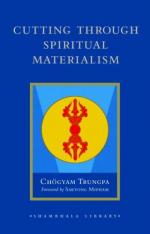|
This section contains 3,950 words (approx. 14 pages at 300 words per page) |

|
Materialism posits the epistemological primacy of matter over ideas, mind, values, spirit, and other incorporeal phenomena. Philosophical perspectives stressing the fundamental importance of physical conditions and needs have grown more elaborate with the increasing differentiation and autonomy of secular knowledge from religion. Materialists oppose magical, religious, and metaphysical explanations of worldly affairs, criticizing their role as mystifications and socioeconomic or political legitimations. The enduring debate over materialism and idealism (which gives primacy to ideas) centers on the two approaches' relative effectiveness as guides to scientific, technical, and sociopolitical practices. In social science, materialism refers to often tacit metatheories, or heuristic devices, which frame distinctive types of research problems, hypotheses, concepts, and theories stressing the causal force of physical realities on sociocultural matters.
Two contrasting threads of the materialist tradition have divergent consequences for the behavioral and social sciences. Reductionists posit that phenomena are determined strictly by physical causes...
|
This section contains 3,950 words (approx. 14 pages at 300 words per page) |

|


